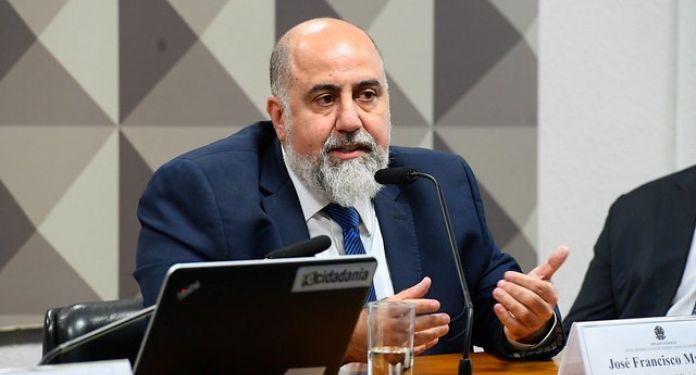
José Francisco Cimino Manssur, was a special advisor to the Executive Secretariat of the Ministry of Treasury, responsible for regulating sports betting and online games in 2023. Now, he makes his debut as a columnist on the website Poder 360 commenting precisely on the importance of regularizing sports betting.
In addition to working at the Treasury until February this year, Manssur participated in the special working group of the Ministry of Sports responsible for drafting the texts of the Fan Statute.
According to the text, published this Wednesday (25), the Brazilian has always had a strong connection with betting. Starting with the creation of Jogo do Bicho in 1892, in Rio de Janeiro, followed by lotteries that have always attracted millions of players. This tradition has intensified in recent years, especially with the advent of online sports betting.
The popularization of internet access and the use of smartphones have made betting more accessible than ever. With just a few clicks, you can participate in different types of games and lotteries.
In 2018, a law allowed private companies to explore betting on sports results in Brazil. However, this measure also provided that the federal government should regulate this activity within two years. This regulation, however, did not happen, creating an uncontrolled scenario between 2018 and 2022.
According to Manssur, this period of lack of supervision plus the ease of placing sports bets online, “resulted in the current perception of a “wild environment”. During this period of vacuum in the law, the former advisor reports that the main problems that arose were:
- Abusive advertising
- Betting addiction
- Over-indebtedness
- Money laundry
- Results manipulation
Advances in betting regulation
However, since 2023, the scenario began to change. The Brazilian government has moved to regulate online sports betting. With the publication of Law 14,790, the Ministry of Treasury introduced new rules that aim to bring order to the sector.
Conar (National Advertising Self-Regulation Council) implemented Annex 10. This regulation prevents betting advertising from suggesting that they are a financial solution or that they are aimed at young people.
Furthermore, the new legislation requires betting companies to be based in Brazil. This change will allow the State to better monitor the sector’s practices.
“Regulation requires companies and websites to be based in Brazil, which did not happen before. Thus, mechanisms are provided for the State to monitor and punish abusive conduct and create rules for payment methods in partnership with Bacen. Furthermore, it obliges bets to provide data on bettors and bet volumes, to support the creation of policies to combat addiction and over-indebtedness”, wrote Manssur.
Therefore, the regulation also allows operators to start collecting taxes and social contributions. From 2018 until 2023, these companies operated without the need to contribute to State revenue, which certainly generated losses for the Union.
The lack of regulation in the past created several challenges that still impact the 2024 scenario. The perspective is that, from 2025 onwards, Brazil will face these problems effectively.
“For 2025, it is quite reasonable to believe that the problems caused by betting will be faced by the Brazilian State in a much more effective way than it has been until then and, so that greater emphasis can be placed on the thousands of jobs and the creation of revenue that the segment of betting will also bring to Brazil.”, he concluded.



